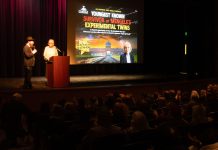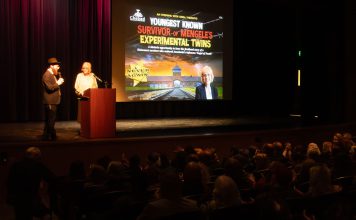GILROY
– A 200-page environmental protest by union lawyers is
triggering a five-month delay of Gilroy’s largest housing
development.
GILROY – A 200-page environmental protest by union lawyers is triggering a five-month delay of Gilroy’s largest housing development.
In the face of Bay Area-wide growing skepticism toward union lawyers accused of environmental blackmail, city officials are calling a rewrite and re-circulation of the Glen Loma Ranch environmental impact report “almost certain.”
The city already has rescheduled a Feb. 9 City Council meeting – to July 12 – in which Council members would vote to approve or deny the nearly 1,400-home Glen Loma Ranch development. And, depending on how much additional environmental work needs to be done, that date could be pushed even further back, the city’s environmental consultant said.
The environmental challenges have triggered Glen Loma Ranch developers to retain their own California Environmental Quality Act lawyer.
A representative from Glen Loma Group – the high-profile Gilroy firm developing Glen Loma Ranch – could not be reached for comment before deadline. However, the firm doing the environmental work on the project confirmed that its $118,000 bill for the consulting it already had done could rise significantly.
“The bill is going up. Will it double? Probably not,” said Teri Wissler Adam, a consultant with EMC Planning Group. “We are writing a new scope of work with all the associated costs right now. I hate to speculate (on a price) at this point.”
Environmental consulting work is charged to the developer, which typically passes the costs on to home buyers.
In November, lawyers representing electrical and sheet metal unions filed 200 pages worth of environmental concerns at City Hall. Unions used four separate environmental consulting firms to poke holes at the project’s environmental impact report. The comments produced a document thicker than the environmental review it blasts.
Critics in the Bay Area have claimed that such environmental concerns from the unions go away if developers sign binding agreements to hire union labor. However, Glen Loma Group developer John Filice has refused thus far to sign a contract for a variety of reasons, including the longevity of the project. Some phases of the development will start construction in 2004, others won’t begin until 2016.
“I’d be crazy to guarantee something seven or eight years down the road when I don’t know what the business climate will be then,” Filice said in November.
Filice said then his company was “shocked” and “outraged” by the approach of the unions, whose workers he said almost always have been used to build Glen Loma Group projects in the past. Glen Loma Group built the Gilroy Outlets and the ritzy Eagle Ridge development, among other high profile projects, with largely union labor. Union lawyers did not return phone calls.
Those close to the project are carefully suggesting that the project’s delay, although triggered by the union protest, does not suggest the existing environmental documents on Glen Loma Ranch are flawed.
“They’re splitting hairs,” Gilroy Planning Division Manager Bill Faus said. “From my perspective, the unions have chosen to attack what is the Achilles’ heal on this project. But often times the environmental documents are the Achilles’ heal because of the complexities of (the state’s environmental) laws.”
Wissler Adam, the EMC consultant, said her firm was in the process of determining which elements of the environmental review would be reworked. She would only confirm that deeper traffic analysis would be part of the more comprehensive environmental impact report.
The new scope of work, she said, would take into account more than just the union’s environmental concerns. The Valley Transportation Authority and the state Department of Fish and Game were among other groups that commented on the Glen Loma Ranch environmental work.
“This is the purpose of the (environmental impact report) draft. We solicit for information and comments to make the document complete,” Wissler Adam said. “This is part of the process.”
City Council members gave a variety of reactions to the process that is beginning to unfold.
Councilman Roland Velasco said the union is out to protect its membership, not the environment. However, he called the delay “an opportunity” to look at the project one more time and “fine tune things.”
Councilman Craig Gartman put a similar face on the matter.
“(The unions) may point out something valid that needs to be looked into,” Gartman said. “I just don’t want there to be a situation where after we get done (approving or denying the project), the unions come up with something else of concern.”
Councilman Paul Correa, who was endorsed strongly by unions in the November election, acknowledged the city’s decision to delay the project could be a combination of legitimate environmental concerns and union appeasement. But he stopped short of saying the unions were getting special treatment.
“This isn’t about special treatment as much as it is about this being a special project,” Correa said. “The city doesn’t want liabilities. If the unions have legitimate concerns, I’d rather pay the price now than have a larger price to pay down the road.”











